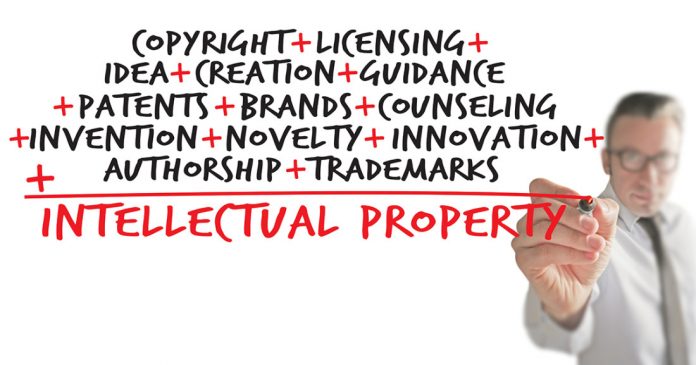
This article has been written by Sakshi Jain, pursuing the Diploma in Intellectual Property, Media and Entertainment Laws from LawSikho.
Table of Contents
Introduction
In today’s modern-day scenario, as a business owner, it is very crucial for one to understand the importance of the role that Intellectual Property Rights play in conducting smooth business transactions. Though intangible in nature, they are without any doubt, one of the most important business assets. The purpose of this article is to make the readers aware of Intellectual Property Rights and the significance that they hold in business transactions. Though each of them is important in itself, this article will specifically focus on copyrights and trademarks.
Copyrights and trademarks, both terms can be referred to as the backbone of business transactions, as both of them instill a sense of security in the minds of the potential consumers as well as the business owners. Though both the terms are proof of the originality of the work of the business, it is pertinent to note that the two defend discrete concepts. They cannot be referred to interchangeably with each other. Usually, copyrights guard original or rational works of the business, while trademarks guard the commercial identity of the business. The role of copyright is mainly to defend the rights of the business of its intellectual works including fictional, theatrical, musical, and creative works. Trademark, on the other hand, plays the role of defending the usage of the name of the business and its brand identity.
Copyrights in business transactions
Before getting into the importance that copyrights hold in conducting business transactions, one must know what copyright exactly is. To put in simple words, the law grants certain rights to originators of every literary, artistic, and musical work, to safeguard their original and creative work from being copied or exploited by any other third party without their due permission. These rights are known as copyright.
The role of copyright is to protect any form of expression itself. They are very crucial for running a successful business, as they are used for protecting every business’s original and creative works including advertising, sales brochures, promotional materials, videos, instruction manuals, photographs, and website content, from being used by any other third party without the business owner’s due permission.
Have you ever wondered, how is it, that our minds immediately jump on those brighter than tube light teeth when we hear ‘Happydent Chewing Gums’, that unbreakable wall, when we hear ‘Ambuja Cement’, those adorably cute ZooZoos when we hear ‘Vodafone’? Well, this is the magic of advertisements, and these advertisements are nothing, but the Copyright of a business. Copyright, therefore, not only plays a crucial role in protecting the creative and original work of the business but also in promoting the business and reaching out to the public at large.
As copyright owners, business owners have the right to control how their work is supposed to be reproduced, distributed, and presented publicly. But most importantly, they can stop others, especially their competitors in the market from using those sorts of works that are substantially similar to their copyrighted work. Copyright confers a number of benefits. A few of these benefits include:
- Only a copyright holder has the right to use the copyrighted work. All others must seek permission from such holders to use the work. Therefore, if someone wishes to use the copyrighted work of a business, they cannot do so until they have explicitly taken permission to do so. For example, the famous ZooZoos, which are the result of the creative and original work of Vodafone, can explicitly be used by Vodafone only. No one else can exploit them without having the authority to do so. Nevertheless, if someone tries to do so without obtaining due permission, such an act will amount to an infringement, which will, in turn, attract a huge penalty.
- Copyright can also help business owners to earn extra money. There have been several instances where in the business owners have undergone practices like licensing the use of their copyrighted works to third parties, as a means of earning additional income from their own creation.
- Another benefit that copyright holds with itself is that, unlike patents and trademarks, a business is not bound to go through the formality of registration in order to own copyright over its work. Copyright protection is automatic in nature. It begins right from the moment an original work is created. Thus, no investment is required to obtain or maintain it. However, it is strongly advised for one to get the work duly registered under Copyright Law. Getting the work registered helps the business to secure greater and effective legal protection, as it serves as evidence for proving ownership of the work to the business owner.
- In India, Copyright protection lasts not just throughout the lifetime of the business owner, but for 60 additional years after the death of the owner, which is a considerably long duration. Therefore, the business gets a long duration to enjoy its copyrighted work from getting infringed by any third party, until the day when their work finally falls into the category of public domain and can be freely exploited by the public in general, thereafter.
- Lastly, copyright law stipulates monetary penalties for infringing upon, i.e., using another’s copyrighted work without taking due permission. These fines may vary, but they can be substantial and are usually based on the court’s determination of financial damage to the business owner, in terms of lost sales, legal fees, and so on.
Trademarks in business transactions
A trademark, on the other hand, is anything that helps in identifying and distinguishing the goods and services of a business from those of others. In the business world, a trademark is commonly referred to as a brand name. It includes names, symbols, logos, and taglines that the business owners use, in order to establish an image of their product in the eyes of potential consumers.
These days, consumers are inundated and constantly exposed to trademarks in their ordinary lifestyles. Consider the terms- Coca- Cola, Nike, Boost, Band-aid, LG, and Jacuzzi, to name a few; consumers sub-consciously regard these trademarks as the actual products/services that they are offered with, rather than their respective brands. This is the power of a trademark. These strong companies were not born with this monopolistic association between their brands and the products/services that they offer. Not only did they think up of a name, symbol, design, or logo which resonated with their product concepts, additionally they got their intellectual property registered as a trademark
Trademark is one of the most important assets that a business will ever own because it helps in identifying and distinguishing the business and its products/services in the marketplace from its competitors. It is absolutely essential to the success of every upcoming and ongoing business in the market. Therefore, it is crucial for every business owner to take a sufficient amount of action to protect and enforce its trademark.
Trademark law permits potential consumers in the marketplace to easily recognize products even from a distance. As trademark owners, the business owners have the right to stop others, including their competitors out there from using their trademark or any mark that is deceptively similar to their trademark and can cause confusion in the minds of potential consumers. Trademark protection encourages three main policies- defense of the business owner’s goodwill, the safety of the consumer, and the efficiency of the economy. A trademark confers a number of benefits. A few of these benefits include:
- Trademark acts as an effective tool of communication for the business. In a single brand or logo, trademarks can convey intellectual and emotional attributes and messages about the business owners, their business, their reputation in the market, and the products and services that they offer. A trademark doesn’t need to always be a word. Designs can be recognized as a trademark as well. To quote an example, just the “Swoosh” design of Nike was enough to get the business recognized globally.
- Trademarks make it easy for potential consumers to find business owners. The marketplace is crowded and it’s hard to distinguish a business from its competitors. This is where Trademark comes into the picture to save the day. Trademarks/brands are an efficient commercial communication tool to capture customer attention and make a business, and its products and services stand out. Customers viewing the trademark immediately know who they are dealing with, the reputation of the business and are less likely to look for any other alternate products/services. The brand could be the critical factor in driving a customer’s purchase decision.
- Trademarks allow businesses to effectively utilize the Internet and social media. The brand is the first thing that customers enter into a search engine or social media platforms when looking for products and services. Higher traffic on a website or social media platform translates into higher rankings, bringing even more traffic, more customers, and more brand recognition.
- Trademarks can make hiring easier. Brands can inspire positive feelings in people’s minds. As a result, employment opportunities are more attractive to candidates. Employee retention can be higher if employees have positive feelings for the brand and the products and services offered.
Conclusion
To sum it up, both copyrights and trademarks contribute immensely to conducting smooth business transactions. Their main motive is to maintain originality in the market, which eventually helps in making room for new job opportunities and fresh ideas. These fresh ideas, in turn, help in flourishing the economy. The goodwill earned by a business is directly associated with its trademark because over the years people have started to identify with it. It has a brand value attached to it which helps the business flourish. If a person tries to fool the consumers, then one can go for the legal resources that are available.
Many artists feel valued if their work is appreciated by an audience. But when somebody else copies and presents it as theirs, then they are being robbed of their due credit. If people continue to steal the credit or work of somebody else, then eventually nobody will be interested in making something on their own and therefore, causing heavy damage to the market. To prevent such situations, Trademarks and Copyrights play an important role in protecting the legal as well as the moral rights of such creators. They make the creators know that not only their work will be duly protected by law, but also will result in helping the business flourish in the market, and this makes them motivated to offer their creativity more often to the business world.
References
- https://ptes.edu.in/the-importance-of-copyrights-patents-and-trademarks-in-business/.
- https://www.tutorsindia.com/blog/dissertation-about-understanding-the-role-of-law-in-copyrights-and-trademarks-in-business-transactions/.
- https://www.lawyersclubindia.com/articles/copyrights-and-trademarks-in-business-transactions-13862.asp.
Students of Lawsikho courses regularly produce writing assignments and work on practical exercises as a part of their coursework and develop themselves in real-life practical skills.
LawSikho has created a telegram group for exchanging legal knowledge, referrals, and various opportunities. You can click on this link and join:
 Serato DJ Crack 2025Serato DJ PRO Crack
Serato DJ Crack 2025Serato DJ PRO Crack









 Allow notifications
Allow notifications


